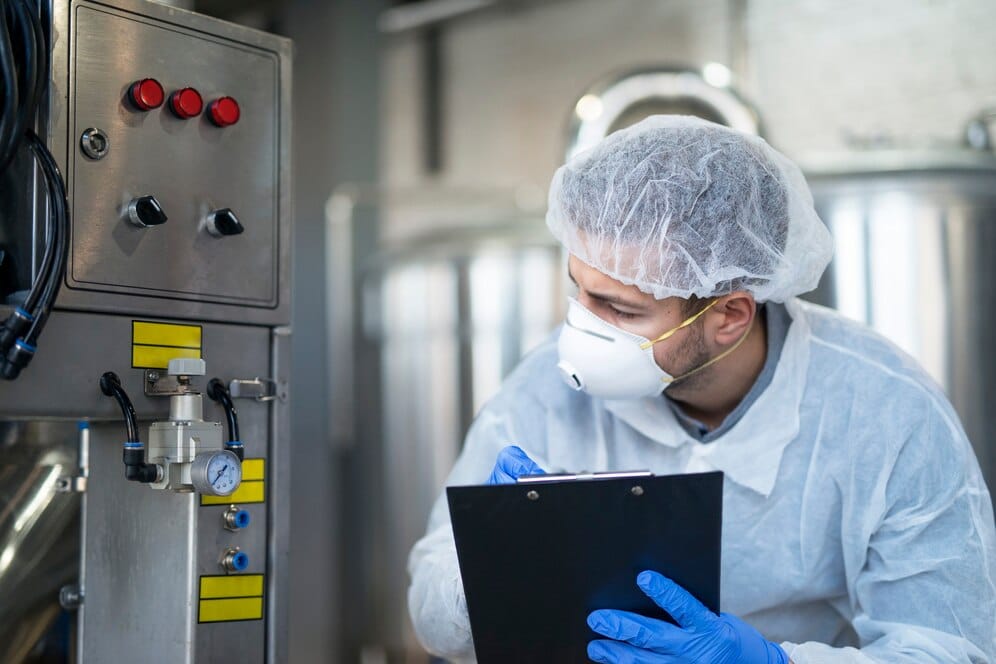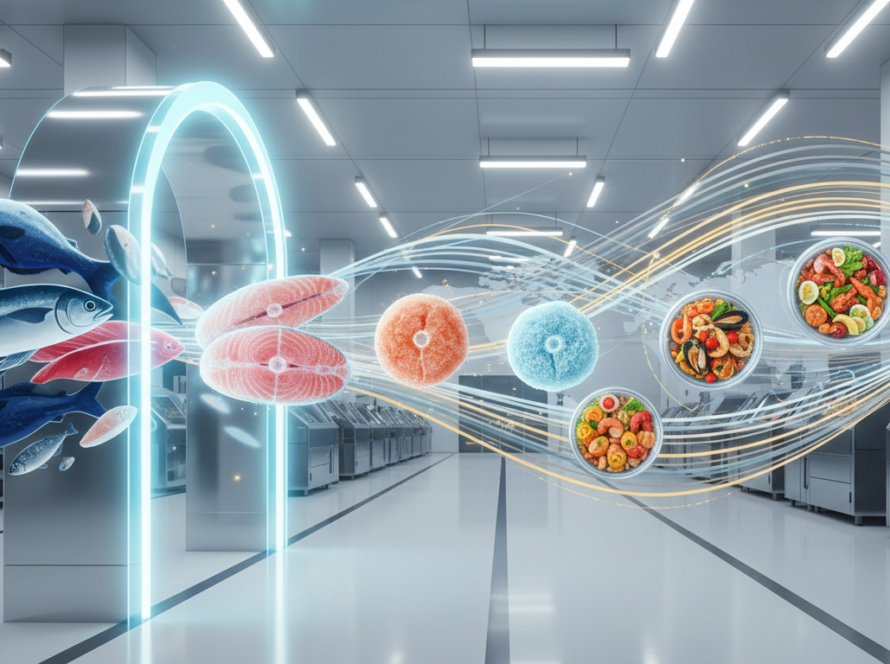
Technology is one of the most important factors contributing to the development of the food industry, as it greatly affects the quality of products and production efficiency. The role of technology in food manufacturing extends from improving production processes to innovations in packaging, all the way to enhancing food security.
In this article, we will discuss in detail how technology contributes to changing this vital sector.
Improving efficiency and production quality
Technology significantly enhances the efficiency and quality of production in food factories. The role of technology in food manufacturing is one of the main reasons for reducing human errors and increasing production speed. Many companies rely on automation systems that include robots, as these systems are used in the preparation and packaging processes, which reduces the time and effort required.
In addition, advanced quality control devices are used to ensure that products meet the required standards. Technology contributes to food manufacturing by using accurate sensors to monitor environmental factors such as temperature and humidity, ensuring that the final product is not affected.
Innovations in packaging
Packaging is one of the areas that have witnessed major developments as a result of the role of technology in food manufacturing. New packaging materials have been developed that maintain food quality for longer periods and reduce waste. For example, biodegradable packaging is one of the important innovations that contribute to reducing the environmental impact.
Recent innovations also include designing smart packaging equipped with sensors that can monitor the condition of food. These packages notify consumers when the product has expired or if optimal storage conditions are not available, which enhances food safety.
Supply chain management
Another aspect in which technology plays a role in food manufacturing is supply chain management. Modern information systems allow tracking of raw materials from source to consumer, which enhances transparency and reduces waste. These systems help companies improve planning and production, using big data to understand demand and storage patterns.
Technology also contributes to improving communication between suppliers and manufacturers, which helps achieve better integration in the supply chain, ultimately reducing costs and increasing profitability.
The role of technology in food manufacturing in achieving food security
Food security is one of the major challenges in the era of globalization, and the role of technology in food manufacturing emerges as an effective solution to enhance this security. Food tracking and source verification technologies help provide consumers with the necessary information about the safety of products.
Companies are using data analytics and artificial intelligence technologies to identify potential risks in the supply chain, enabling them to take precautionary measures before any problems occur, contributing to improved food security.
Innovations in sustainable production
The food industry is moving towards sustainability, and the role of technology in food manufacturing plays a crucial role in this direction. Companies are relying on precision agriculture techniques to improve the efficiency of using resources such as water and fertilizers.
Innovations in the use of renewable energy contribute to reducing the carbon footprint of food factories. The use of solar and wind energy is an example of how the industry is leveraging technology to achieve its environmental goals.
Enhancing the consumer experience
Food manufacturers are seeking to enhance the consumer experience through the role of technology in food manufacturing. Through applications and websites, consumers can access comprehensive information about products, such as ingredients and their health benefits.
Technology also allows products to be customized to meet different consumer needs. For example, consumers can choose specific ingredients based on their nutritional needs, which enhances their satisfaction with the products.
The Role of Technology in Functional Food Manufacturing
Today, the industry is moving towards the production of functional foods, which are foods that have additional health benefits. The role of technology in food manufacturing plays an important role in this area, as new technologies such as genetic engineering can be used to develop disease-resistant or nutritionally enhanced plants. These innovations enhance the value of food and meet the needs of consumers looking for healthier options.
The Role of Technology in Food Manufacturing by Improving Research and Development Processes
Technology also contributes to improving research and development processes in the food sector. By using techniques such as modeling and simulation, researchers can test new product formulations before starting actual production. The role of technology in food manufacturing enhances the efficiency of these processes, which speeds up the time to market and reduces costs.
The Role of Technology in Reducing Food Waste
One of the major challenges facing the food industry is food waste. In this context, the role of technology in food manufacturing plays a vital role in reducing waste. Modern technologies are used in data analysis to improve demand forecasts, which helps companies produce the right quantities and avoid surpluses.
Furthermore, advanced storage technology helps preserve food for longer periods, reducing the chances of spoilage and waste
The role of technology in food manufacturing through the development of analytical techniques
Technology also helps in the development of advanced analytical techniques to measure the quality and nutritional components. Mass spectrometry or spectroscopy can be used to determine the exact composition of food materials. The role of technology in food manufacturing enhances the ability of companies to provide accurate information about their products, helping consumers make informed decisions
The expected future of the role of technology in food manufacturing
As technological innovation advances, we expect the role of technology in food manufacturing to continue to expand. Technologies such as artificial intelligence and robotics will play a greater role in the future, helping companies achieve higher levels of efficiency and quality.
In addition, innovations in alternative food production, such as plant-based proteins and meat-free products, are expected to contribute to changing the way we eat and reducing our environmental impact.
Ultimately, the role of technology in food manufacturing is essential to improving efficiency and quality. As innovations continue, this role will continue to impact how food is produced and distributed.
For those seeking to enhance their capabilities in this field, ProNano is the ideal choice. As a consultant in the food industry, the company provides innovative solutions and in-depth studies that help companies effectively leverage the role of technology in food manufacturing. You can contact ProNano for specialized consultations in this field.
Read more about the jam manufacturing project



